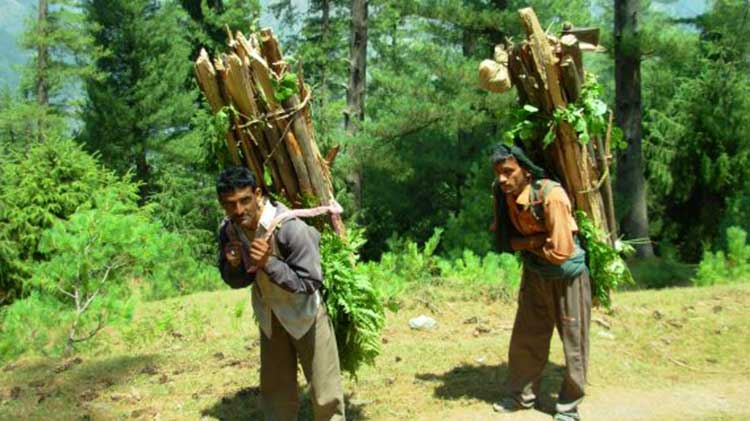
On 26 July 2023, the Loksabha passed the Forest Conservation (Amendment) Act, 2023, replacing the Forest (Conservation) Act, 1980.
This at a time when there should have instead been widespread celebrations commemorating 51 years of Silent Valley Movement and 50 years of Chipko Andolan, the two biggest people’s movements on ecological conservation in the country, which proved critical in enacting Forest Conservation Act, 1980 replacing the colonial era Forests Rights Act 1927 and seeking to arrest deforestation.
Since timber was their greatest and most imminent need, India’s British rulers, first through the Indian Forest Act of 1865, turned forests with high-yielding timber trees such as teak, sal and deodar into state property. And then, through the Forest Rights Act ,1927, the rights of the local people over forests were curtailed and made severely restrictive. Since then and even Post-Independence, these legal impositions together with invasive plantations of exotic trees, adversely impacted agriculture and animal husbandry activities, impoverished local communities and put their survival at stake.
During these decades there were scattered protests by communities here and there until increasing hardships and questionable projects saw people rise in the Silent Valley Movement in Kerala and the Chipko Andolan in Uttarakhand (then part of UP) in the early 1970s.
In Kerala’s Palakkad district, around 1970, the Kerala State Electricity Board (KSEB) proposed a hydroelectric dam across Kunthipuzha river, which originated in the lush green Silent Valley (thus named by the British because of a perceived absence of Cicadas’ noisy buzz there!). With opposition to it starting almost immediately, the project was nevertheless approved in 1973. The next ten years witnessed a see-saw battle between the State and the people, turning the initial awareness campaign into a mass people’s movement that spread beyond the district, beyond state’s borders and further drawing national and international attention.
In the early eighties, the return of Indira Gandhi as the Prime Minister, was a stroke of luck for the protesters because of her personal bent towards ecological concerns. In 1983, following unrelenting public pressure, Indira Gandhi called off the Silent Valley Hydroelectric Project. In 1985, Prime Minister Rajiv Gandhi formally inaugurated Silent Valley National Park, which on 1 September 1986, finally got designated as the core area of Nilgiri Biosphere Reserve.
Concurrently, another movement was taking place in the northern part of the country – in two districts of Garhwal in Uttarakhand. There too, the initial issue was very local – a demand of the local cooperatives for a share in forest produce for commercial purposes. But the protest that caught national attention happened right inside the forest of Reni (Chamoli Garhwal) in March 1974. A sports goods company from outside the region had been granted a contract to cut trees and in the absence of men in the village who were lured away for a meeting, the contractor had sent a labour team to do the job. In swift action, the Mahila Mangal Dal of Reni village, led by Gaura Devi, reached the site and threatened to hug the trees in the event of the labourers raising the axe to cut the trees. The women’s readiness for the supreme sacrifice immediately stayed the hand of the labourers and they retreated. And like the Silent Valley Movement, the Chipko too got known nationally and globally. And the Chipko too, transformed from a local commercial demand to become the ecological conscience of the mountain regions, with one of its leading activists, the Late Kunwar Prasoon (Tehri) penning Chipko’s immortal slogan –
Kya hein jangal ke upkaar
Mitti, pani aur bayaar
Mitti, pani aur bayaar
Zinda rehne ke aadhar
(What are the forests’ benevolence?
Soil, water and air,
Soil, water and air
The very basis to stay alive)
It is truly remarkable how, long before the internet era, both these relentlessly driven, decade long people’s movements laid fresh ground for understanding forests and their utility, shifting from ‘timber’ to now ‘conservation’. We can justly say that the Forest (Conservation) Act, 1980 was a result of widespread ecological awareness generated through the Silent Valley Movement and the Chipko Andolan, and was also recognition by the government of people’s concerns and rights to natural resources. The new Act sought to restrict forest land from being used for non-forest purposes and regulated the extraction of forest resources by industries by ensuring that any such diversion be duly compensated. The Forest (Conservation) Act, 1980, was a distinct intent to prevent large-scale deforestation. Indeed, in the last 40 years since then only about 1.5 million hectares of forest lands were diverted for non-forest use as compared to about 4.2 million hectares in the preceding three decades.
Now, in an utmost callous and even roughshod manner, the Forest (Conservation) Amendment Bill, 2023 has been passed. Introduced in the Parliament on 29 March 2023, there were many objections to it, following which a Joint Parliamentary Committee (JPC) was set up to look into the matter. Nearly 1,300 representations from diverse groups — independent think-tanks, conservationists, tribal groups, Indian Forest Service personnel, environmental lawyers and activists, et.al. — were submitted to the JPC, listing their concerns with the Bill. But on 11 July, the JPC officially cleared the bill, approving the original version sent by the government with almost no comments, revisions or suggestions, except separate notes by some individual members.
Among other voices in protest, over a hundred former civil servants, members of the Constitutional Conduct Group (CCG), have since written to all members of parliament expressing their concern over not just the contents of the Bill but also the process followed in passing it, thereby “making the examination partisan and unsatisfactory.”
While underlining the complex challenges involved in balancing industrial development and the conservation of forests, the new Bill instead of strengthening Forest (Conservation) Act, 1980, not only takes the convenient and questionable route to undermine its whatever gains but more importantly, obliterates the history of people’s struggles to establish ecological temper in the society and de-recognizes their first say and right to natural resources.
Biju Negi is Hind Swaraj Manch














































